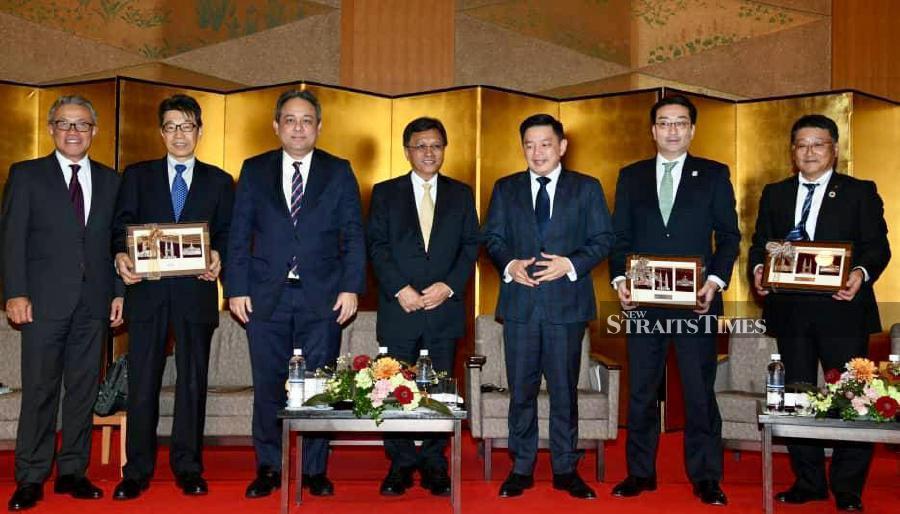 |
| Chief Minister Datuk Seri Mohd Shafie Apdal (4th from right) has assured that the state government would provide easy access to Japanese companies interested to invest in Sabah. NSTP/ courtesy
KOTA KINABALU: Chief Minister Datuk Seri Mohd Shafie Apdal has assured that the state government would provide easy access to Japanese companies interested to invest in Sabah.
He said the state government would reduce red tape, provided that the application submitted was in accordance with standard operating procedures.
“Sabah is a prime location for investors because it is strategically placed for the halal industry, halal cargo consolidation and redistribution activities and has an abundance of resources.
“Among them include as palm oil, aquaculture, fisheries, seaweed as well other by-products from palm oil and bio-refineries both within Sabah and the broader BIMP-Eaga region,” he said in a statement.
Mohd Shafie was addressing 200 investors and businessmen from 140 companies in Kobe as the first leg of the state's trade mission to spell out investment opportunities in Japan yesterday.
He also delivered keynote address at a business seminar and spent three hours explaining at length the many business potentials in Sabah due to its strategic location as a gateway for Japan to expand their trade to the Asean countries.
“Japanese companies can take advantage of the new port facilities at the Lahad Datu Palm Oil Industrial Cluster, which is located in the trade path of the Lombok-Makassar Straits.
“With 1.5 million hectares of oil palm, Sabah produces six million tonnes of Crude Palm Oil and 30 million tonnes of Crude Palm Kernel Oil per annum for the biomass industry, which is popular in Japan,” he said.
Mohd Shafie explained that the state government has banned the export of round logs in order to support the growth of the furniture industry.
“Sabah has some of the world’s oldest rainforest, and our timber industry is being developed on a sustainable basis in compliance with global standards.”
of Chief Minister Department |
Comments
Post a Comment